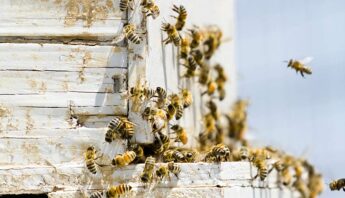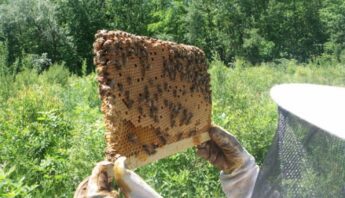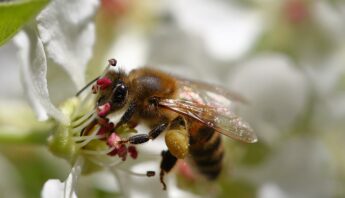For Immediate Release: August 21, 2014
Contact: Lex Horan, lex@panna.org, 651.245.1733
St. Paul, MN – This morning at the Minnesota State Fair, the Minnesota Department of Agriculture (MDA) announced the launch of a new “Protect Minnesota Pollinators”campaign. MDA’s campaign focuses on increasing pollinator habitat in roadsides, in yards and gardens, and on farms, with an emphasis on individual behavior change in planting, mowing and pesticide use. MDA’s announcement comes after the Agency has worked for several months to develop Best Management Practices for pollinator habitat, and shortly after the Agency hired a public relations firm to manage their work on pollinators. MDA is also in the midst of a registration review of neonicotinoid pesticides.
Lex Horan, Midwest organizer with Pesticide Action Network North America, released the following statement in response to today’s kickoff:
“PAN and many other pollinator advocates in Minnesota heard today’s announcement from MDA with mixed feelings. MDA is making progress by taking responsibility for pollinator protection. But MDA’s announcement has a glaring omission. It fails to make any meaningful mention of pesticides that are known to play a major role in declining bee populations.
Each of us must take individual steps to protect pollinators. But for a state agency with the authority and the resources to act on the root causes of pollinator declines, an emphasis on ‘awareness raising’ and individual actions isn’t enough. The science is in: neonicotinoids, other systemic pesticides, and fungicides are harmful to bees, and they are an important factor in declining bee populations. MDA has the opportunity to support farmers who want to access neonic-free seed; incentivize the use of less-toxic alternatives to neonicotinoids; and promote integrated pest management practices that manage pests without harming beneficial insects. These types of solutions aren’t included in MDA’s Best Management Practices; the Agency has another opportunity to enact them through its review of neonicotinoids.
Minnesotans can and should take steps in our own backyards, but the problem will only be solved when state political leaders go beyond public relations campaigns to create real protections for pollinators.”







